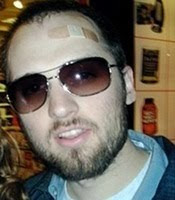
I have had the privilege of writing about each Lost episode over the past two seasons. The show has produced some excellent episodes in that span, most notably Episode 4.05, The Constant. Desmond’s Season Four time trip (penned by Damon Lindelof and Carlton Cuse) was by all means an outstanding achievement, an emotional and cerebral journey that reshaped the viewer’s outlook on the series. A full season later, audiences now have been treated with Episode 5.05, This Place is Death, written by Edward Kitsis and Adam Horowitz. This veteran Lost writing tandem brings it own unique blend of dark humor, introspection, and thematic connections to the show. In my opinion, This Place is Death is the finest Lost episode since the ending of Season Three, which concluded with the Kitsis/Horowitz classic Greatest Hits and the Lindelof/Cuse epic Through the Looking Glass. In its own way, this episode similarly alters perspectives on Lost’s past, present, and future. The Island means many things to many people, and quite possibly its most important meaning was expressed in those four words: “this place is death.”


